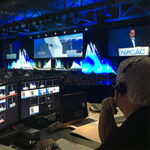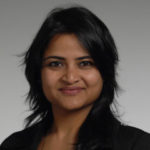
When your goal is to “improve the standards of education for underprivileged children” around the world, where do you start? For Vikas Pota, chief executive of the Varkey Foundation, headquartered in London, the answer is everything from refurbishing schools to training teachers to offering the $1-million Global Teacher Prize — not to mention organizing a heavyweight, invitation-only conference called the Global Education & Skills Forum (GESF). Held in Dubai annually since 2013, GESF brings together leaders from the public and private sectors to discuss how to create lasting, significant change in global education.
Recently Pota spoke to Convene from his home in London about GESF 2015, held this past March for 1,300 attendees from 80 countries and organized around five “themed pillars”: The Learner in the 21st Century, The Effective Teacher in Society, Leadership for 21st-Century Education, Unleashing Sustainable Innovation, and The Private Sector & Education. Pota also talked about why GESF doesn’t have an outcomes statement, how this year’s Global Teacher Prize recipient was chosen, and what conference participants had to say about learning in the 21st century.
Your belief is that the current global education crisis will only be tackled through a multi-stakeholder, collaborative effort. Why?
I am a professional conference-goer, and attend many of the events you probably write about and attend. There are three major types of conferences. One is the government-led type of educational conference where you have education ministers who convene together, resulting in governments issuing declarations and draft resolutions, which then feed into a wider body like the United Nations or that type of organization. These meetings seldom attract the private or voluntary sectors.
The second is offered by the NGO [nongovernmental organization] sector. These are great conferences, with the primary focus to showcase the great work that NGOs do in their respective fields. But many times their focus is on donors, because they need financial resources to scale.
The third type is the private-sector events, such as the World Economic Forum, which convene the good and great in places like Davos [Switzerland]. They speak about all the weighty subjects in the world, including education and skills development, but you find virtually no one from the education sector being invited.
We believed that these stakeholders, including those in education, must meet together and dialogue, because a lot of the challenges we face are about how we can improve the education system and thereby avert crises we are heading towards.
We don’t have the luxury of saying this is just the responsibility of one sector or the other. We need to put our heads together.
What was the primary focus of this year’s Forum?
In [our] third year, 2015, we found that we just couldn’t keep the content theoretical, so we turned it on its head and said, we’ve talked to death about policy and would rather hear from people who are doing interesting and innovative things in the education field all over the world. As a result, we had many very dynamic people who work in small NGOs, private-sector corporations, and even policy entrepreneurs who came from all over the world. They shared what they are doing, presented case studies, and described the support they required. Our focus was bringing the change makers to the table and putting them in front of policy people and private-sector corporations, and demonstrating the great work that is happening and asking how we can scale up.
How do you choose your presenters from among so many highly accomplished people around the world?
Every year we establish a theme and search for the best speakers for the theme. The event is now referred to by others as the “Davos of education” — referring to the acclaimed World Economic Forum held in Davos, Switzerland — which is quite pleasing.
How we approach the selection of presenters is that we want the best content possible. We aren’t necessarily concerned with the biggest and best-known speakers. We are seeking people who are genuinely doing something innovative in the field that ought to be given a platform. Over the three years we have had approximately 80 education ministers; many former heads of state, including former President Clinton and [British] Prime Minister Tony Blair; and participation by videoconference by Bill Gates.
The thing is, if the content is very captivating, the esteemed personalities connect with the subject as they have something to contribute, which is gratifying. And if we can use them to amplify the system, we should.
Do you have a team of people who serve as researchers to uncover who is doing innovative and breakthrough work?
It may surprise you, but our team is relatively small and consists of two people. The core team is me and a colleague, Mark Boxer. Our team of two is supported by a wider team of contractors and freelancers, public-relations agencies, and branding experts.
Mark and I travel the world and meet interesting people who are change makers. Our role is to engage with change makers throughout the year, not just at our conference. For example, one of the themes at [GESF 2015] was that schools are under attack, so in London two weeks ago we hosted a conversation about this subject. Most importantly, critical themes with change makers occur all year round, so identifying people is an ongoing process.
To find innovative people in the field involves seeking them out. They are usually willing to participate, as the subject matter of the Forum is captivating. People attend for the content. We are not providing an inducement. We are very well networked and have excellent partners, such as the Harvard Graduate School of Education; Education International, which is a federation for teachers unions; the Inter-American Development Bank, which is a funder of education projects; the United Nations Educational, Scientific, and Cultural Organization [UNESCO]; and others. Through these networks and organizations, we are able to find the most relevant and appropriate people to come to the conference. That has been one of the successes of the event.
What role do the participants play?
You will be pleased to know that the audience participates. One of the unique features of this event is that we have multiple formats. A lot of large conferences are primarily in plenary [sessions], with a large panel and large audiences sitting there all day long every day, and it becomes very staid. We offer many different formats such as panels, roundtables, [and] informal dialogues that allow small groups to interact, as well as large plenary sessions.
Some sessions are online and in real time, and by doing so we keep the conference and delegate experience alive. If you take the Global Teacher Prize, which is a major event at our conference, it is streamed live, with lots of chatter online. Online is the new normal. If your role is to foster dialogue, you can’t avoid online opportunities, as it is an important tool to achieve that outcome.
How do you encourage connections and collaboration?
We offer our speakers the opportunity to be introduced to each other. We actively facilitate these introductions, so people follow up and arrange meetings. We provide space for that to happen. We have a system for delegates to get in touch with each other, which is quite positive. People also arrange meetings on the fringes of our event, which is becoming more and more the case.
At many big-idea conferences like the Forum, participants explore critical ideas and then return home to their day-to-day hectic lives without much follow-up. Are there action steps taken at the conference to encourage follow-up?
What we decided as a very noble goal for our foundation is to foster dialogue. There are lots of people that get their knickers in a twist and say there are no declarations of any kind [at GESF]. Actually, the conferences I attend that have declarations I think are creating just a gimmick. When I approach this conference, I ask the people attending if they see value in exchanging ideas, networking, and meeting other people who can help them shape their thinking and implement new initiatives.
‘We don’t have the luxury of saying this is just the responsibility of one sector or the other. We need to put our heads together.’
To give you an example, this year we had about 30 [national] education ministers attend. It is unheard of that ministers travel to a conference and aren’t given the opportunity to speak. At least two-thirds [of the ministers] were just delegates who sat in the audience, shared their experiences, and listened to the sessions, making a big impact on the audience. There is a demonstration from them that they have something to learn from this Forum. That is a great thing. The fact that they stay for the entire Forum speaks to the strength of the event. They are learners themselves.
One of the themes this year’s Forum explored was the needs of the 21st-century learner. What were some of the outcomes of that dialogue?
Our entire world is changing so quickly. We have access to an unparalleled amount of information though technology. The model workplace demands continuous learning, with the acquisition of new skills throughout our life.
We addressed how we can respond to this rapidly changing environment. What the discussions highlighted was that the 21st-century learner is short on patience and on time to fulfill their aspirations. They are learning mostly on their own and may not respect authority as in “the teacher knows best.” Since they are short on patience, the long, in-depth curriculum is not effective.
This session [on the 21st-century learner] took place in the middle of the room, with the speakers in a circle and the audience on raised platforms to foster dialogue. The World Economic Forum actually released a report on a New Vision for Education at our conference. It outlines competencies that future learners will require in the workplace in particular. [See “21st-Century Skills,” p. 81.]
I was especially intrigued by the Global Teacher Prize, which seems like a wonderful program.
Just as our conference is referred to as the Davos for education, many are referring to the teacher prize as the “Nobel Prize for teachers,” which is gratifying in our journey. The award is to underline the importance of the teaching profession and the fact that teachers throughout the world deserve to be recognized and celebrated. This event held during the Forum received spectacular coverage at the conference, online, and through the global print media.
As a marquee event for teachers in which we offer a $1-million prize to one teacher annually, we also had the 10 finalists attend the Forum. The winner was American, and the finalists came from situations which are very challenging. For example, we had a teacher from Afghanistan who dodged the Taliban and created a school for girls. When you see all these aspects of education and teaching, it is very inspiring.
What were the main reasons the teacher who was selected this year was chosen?
To be clear, there is an independent process as to how the winner is chosen. Like the Oscars, we have an academy of judges, which this year consisted of 60 people from around the world. PricewaterhouseCoopers manages the process.
This prize is for an incredible teacher. There are many prizes given for humanitarian efforts, but we want to be clear that our prize is for teaching and for doing incredible things in the classroom. Nancie Atwell, [language-arts] teacher and CEO of the Center for Teaching and Learning, was this year’s award winner. She developed a unique and highly successful methodology about the power of reading that has significantly increased the number of books students read annually by many fold.
What should our readers know about the Forum that we have not addressed yet?
I also want to mention how important it is to focus on media relations, so that the messages of the conference are being communicated well. We are delighted that our conference attracts about 100 journalists from around the world who write about the subject matter. Key marquee publications as well as specialist publications are welcome to attend and participate in the conference. We don’t operate in a closed-door format. The speakers know that everything they say is on the record.



